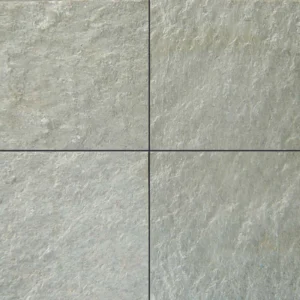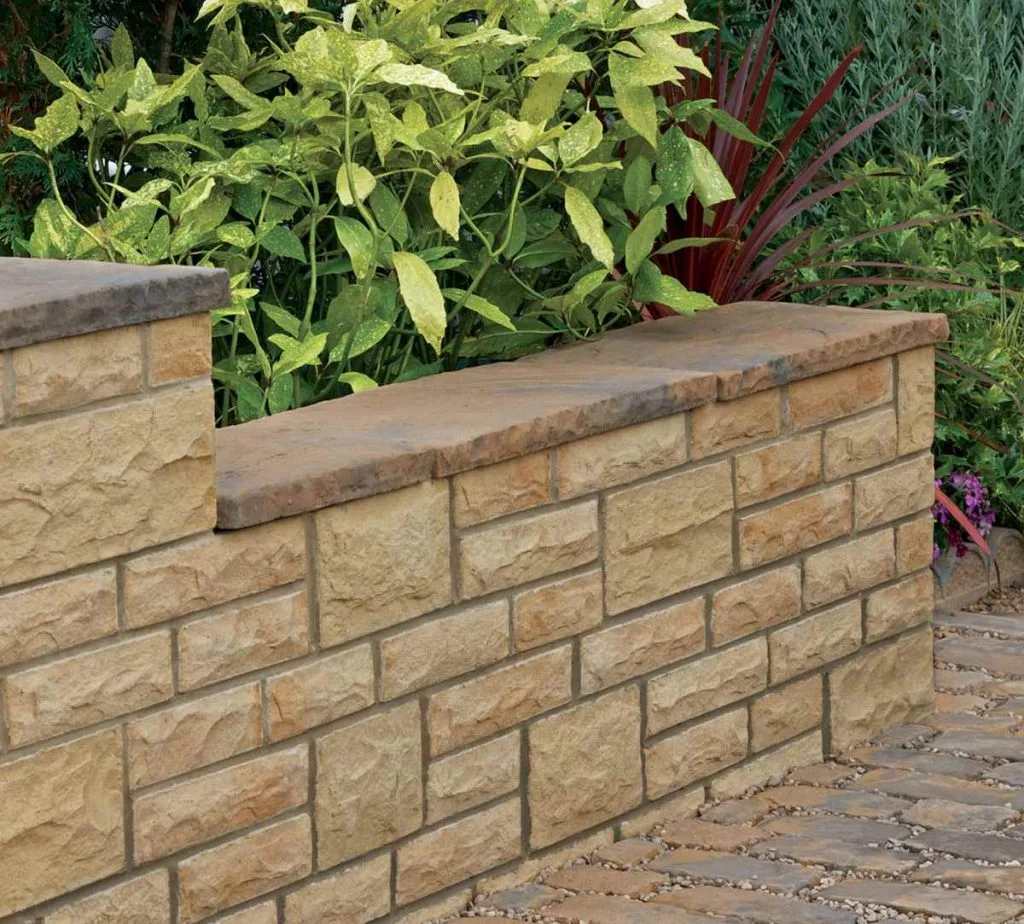
The texture, performance, striking colors, aesthetic, and rugged natural look are some of the prime reasons why sandstone is considered as a superb building construction material. Sandstone bricks in various sizes render a general impression of cathedral or public building. Know here why sandstone bricks matter the most and what options are available in the competitive market for sandstone lovers.
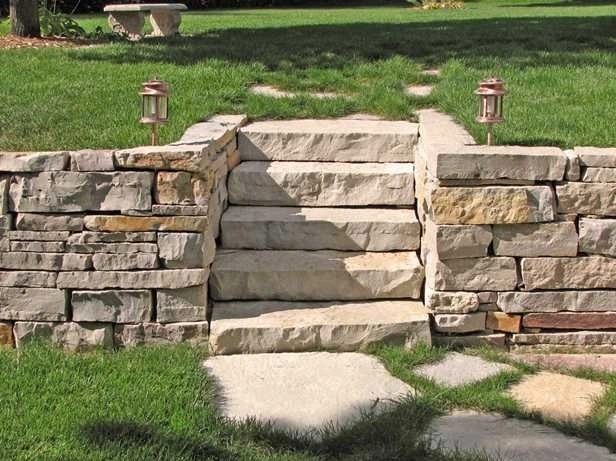 Sandstone has been around us for ages and it has been a part and parcel of all king-sized castles, forts, and temples. Sandstone bricks have been a vital construction material for raising walls in garden, patio, fireplace, or backyard. These days, modern homes welcome
Sandstone has been around us for ages and it has been a part and parcel of all king-sized castles, forts, and temples. Sandstone bricks have been a vital construction material for raising walls in garden, patio, fireplace, or backyard. These days, modern homes welcome
sandstone walls in order to impart a classic and attractive look to their internal and external living premises. Be it related to covering the entire buildings or making walls and entrances, brick walls of sandstone make a big difference. Sandstone is popular for constructing solid walls owing to various inherent properties, like fine-graining, toughness, roughness, compaction, hardness, compressive strength, low absorption, non-slippery, fireproof, and anti-climate. There are also sandstone bricks, slabs, and walls for making walls. Making walls with sandstone bricks means acquiescence of an antique look. Find out here more on various aspects of sandstone bricks with reference to sandstone color options from Indian sandstone suppliers.
Different aspects of sandstone bricks
We have already seen lots of raising walls in mammoth castles, palaces, and religious structures in all parts of the world. There are lots of building construction materials, but sandstone gives an edge due to its inherent physical and chemical features. For many decades, sandstone bricks have been the most vital thing involved in the architecture and assembly of functional and strong walls. Be it your home or office, sand stone bricks are the first choice of all stone experts and engineers. With changing building architecture trends, the sandstone bricks are seen as a material that provides antique appearance with an expression of artistic adroitness. It is sandstone brick texture and dimensions that make the stone fit for all residential and commercial applications. Being highly-resistant to acids and alkalis, sandstone bricks perform well under all climatic conditions. That is why these bricks add a distinction to internal and external paved areas.
It is known that the natural stone wall and natural stone bricks are synonymous with each other. Being one of the best alternatives for strong walls, sandstone bricks are laid lengthwise (stretchers) and crosswise (headers). In the competitive market, these bricks are available in the form of hand-cut and machine-cut options. As far as stone bricks specifications are concerned, you can have bricks with both sides natural split surface finish. You can also opt for all edges to be hand dressed. The size of the stone always matters the most. So, you can place an order for free-size, available only on demand.
- The general size of sandstone brick: 200 x 100 x 70mm
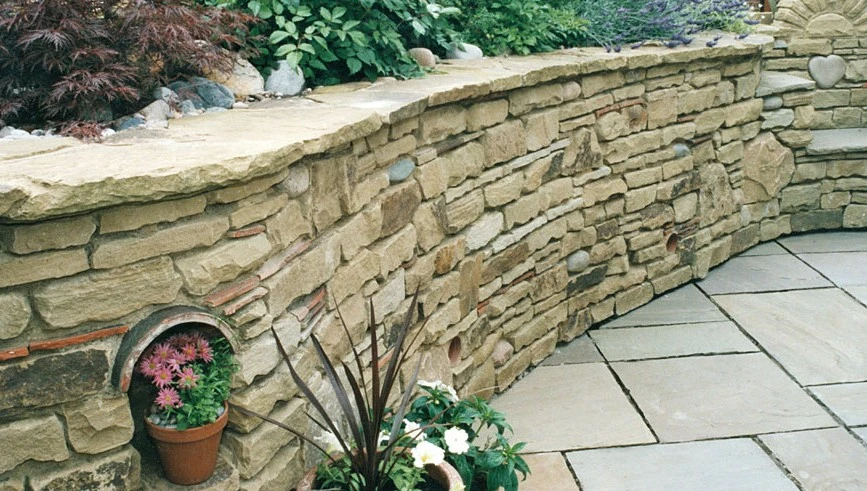
Whether you are searching for sandstone bricks for sale or raising wall, Indian sandstone suppliers come to your service with a wide range of colorful products.
Sandstone Brick Color Options from Sandstone Suppliers
Natural stone bricks are not like common bricks that are made of clay materials at a kiln. Sandstone bricks are a natural stone material cut and designed from big blocks and slabs at a sandstone factory. In India, there are lots of sandstone processing units where modern stone cutting instruments give a superb shape and look to bricks. There is no dearth of top-quality sandstone bricks sold and supplied by qualified suppliers of sandstone in India. All you have to do is to reach the right platform and make a wise decision without wasting your precious time. Following are some popular sand stone colors that B2B buyers can purchase from sandstone exporters and suppliers from India. These include:
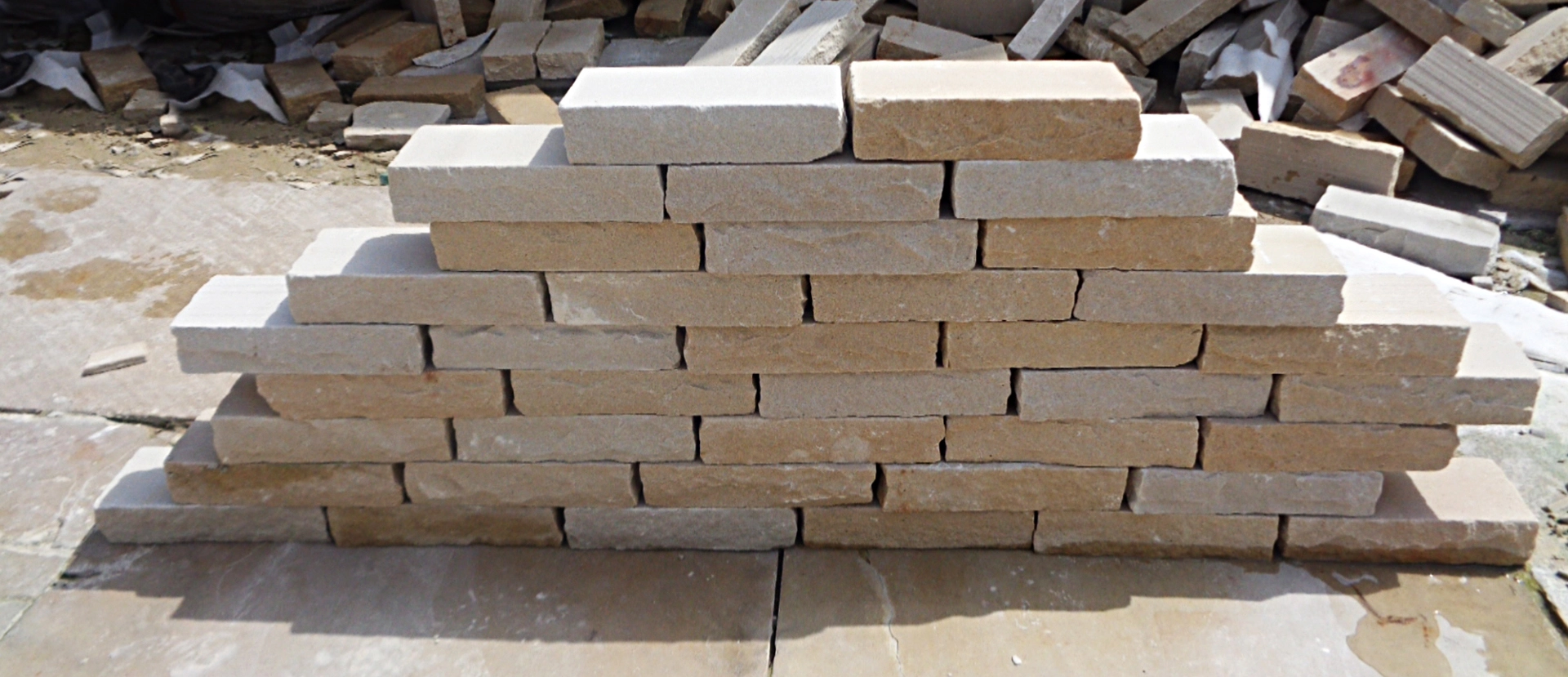
- Black – Sagar black sandstone
- Brown – Autumn brown, camel dust, Dholpur beige, Kota desert and two-tone sandstone
- Gold – Asian gold, flowery gold, golden teakwood, and ITA sandstone
- Green – Raj green sandstone
- Grey – Kandla grey, L. Grey and Toksana sandstone
- Pink – J. Pink and Modak sandstone
- Red – Agra red, J. red, and mandana sandstone
- White – White mint sandstone
- Yellow – Fossil mint, Jaisalmer yellow, L. yellow, and yellow mint sandstone
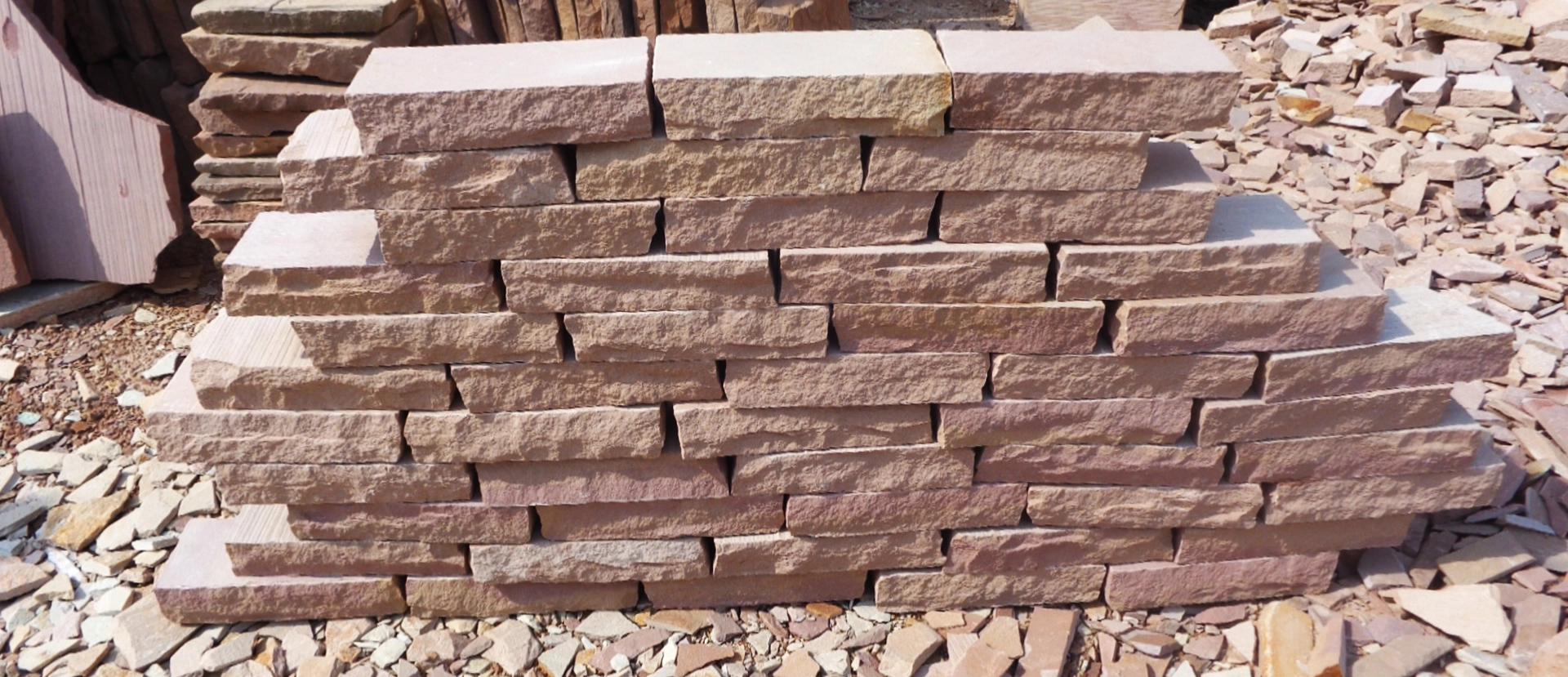
Regatta Universal Exports is a sandstone supplier offering colorful sandstone bricks to its global natural stone B2B buyers at competitive prices. The 20-year-old company has its own sandstone factory in North India.


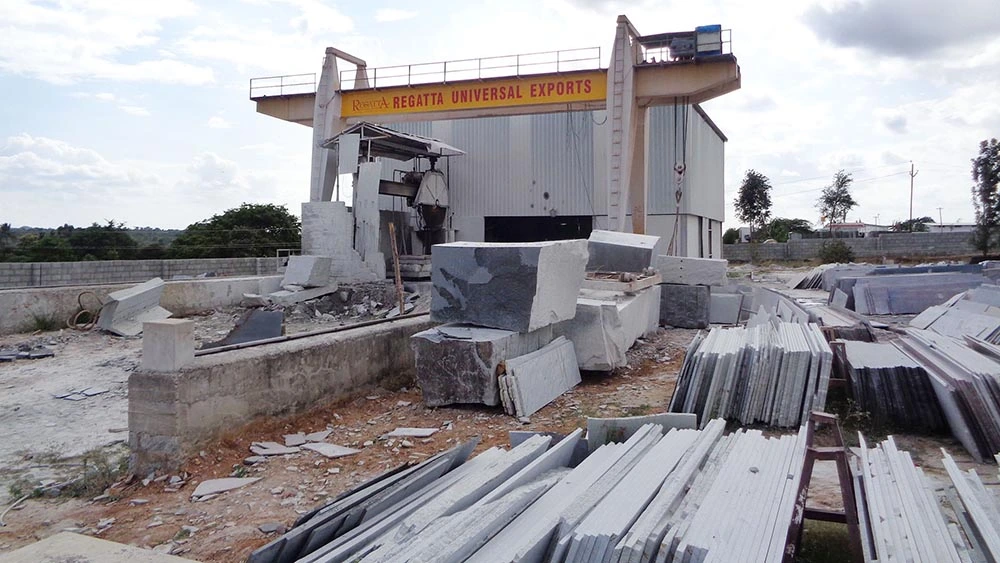



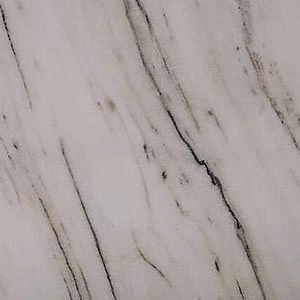

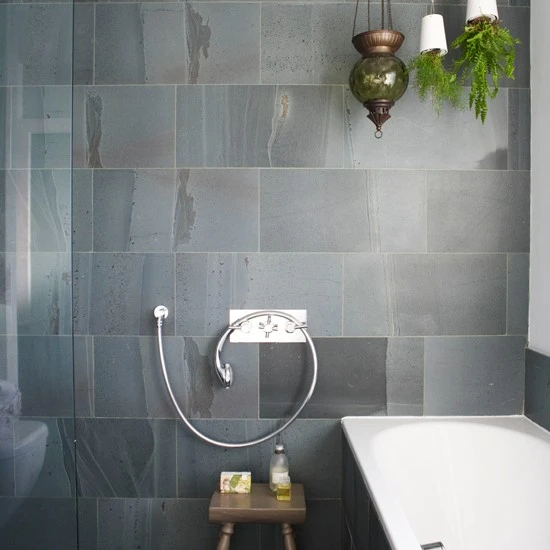
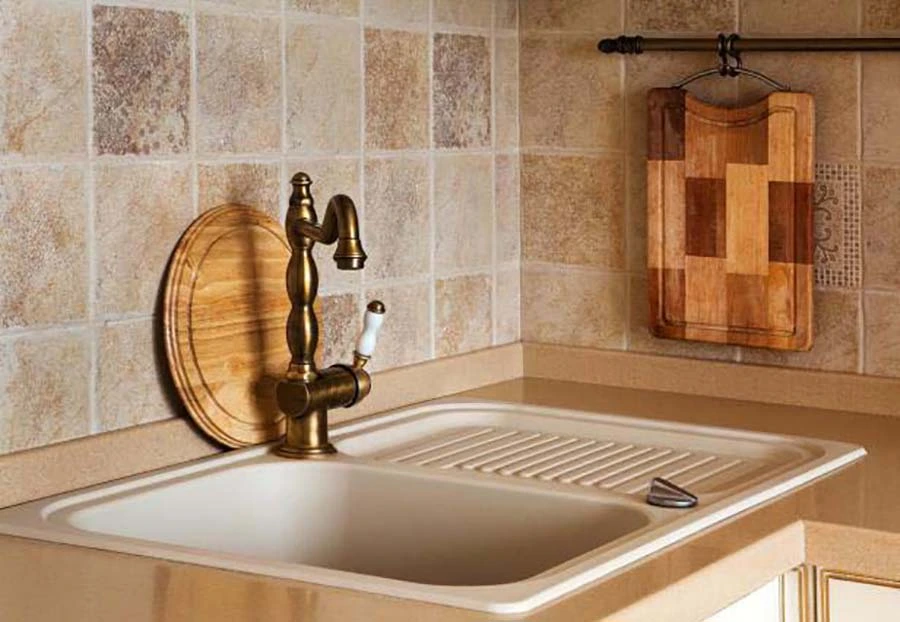
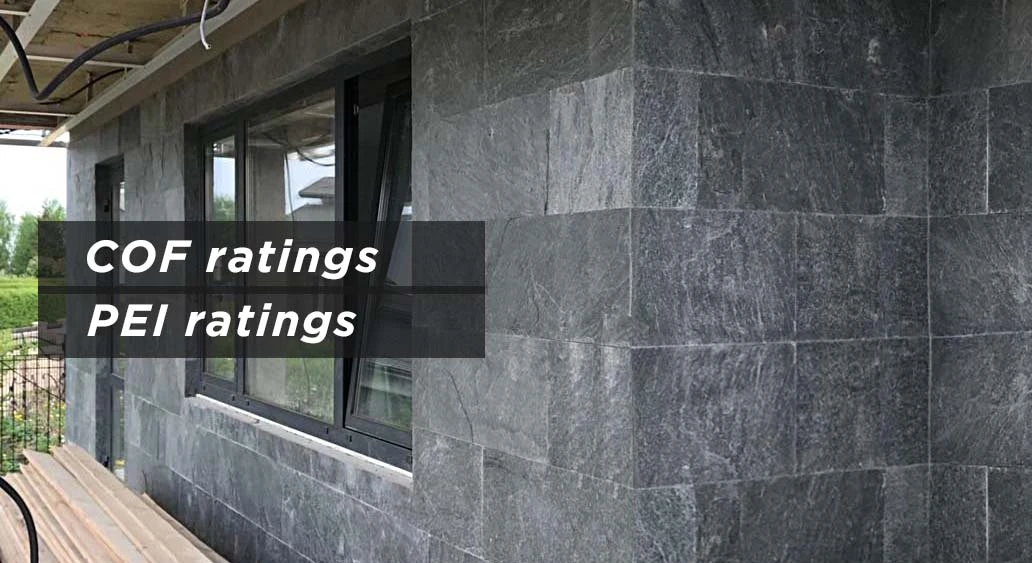
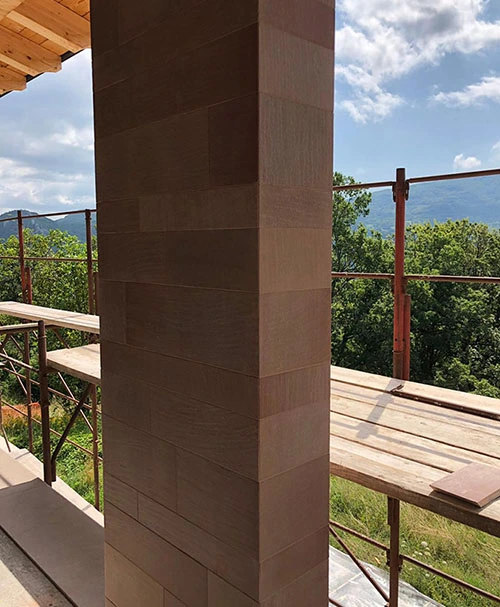 The class I of PEI rating is ideal for stone wall tiles. It is a big fit for wall-only applications. The class II is also suitable for interior wall applications in the residential and commercial segments. Last three options are useful for foot traffic. PEI ratings are directly related to specifications of tiles. Tile hardness ratings allows you to know which tile is right for a particular space (indoor and outdoor). Hardness rating of
The class I of PEI rating is ideal for stone wall tiles. It is a big fit for wall-only applications. The class II is also suitable for interior wall applications in the residential and commercial segments. Last three options are useful for foot traffic. PEI ratings are directly related to specifications of tiles. Tile hardness ratings allows you to know which tile is right for a particular space (indoor and outdoor). Hardness rating of 




